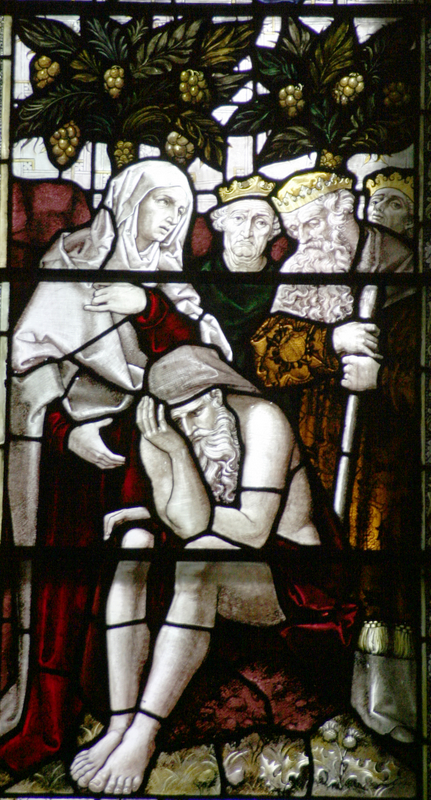Now when Job’s three friends heard of all these troubles that had come upon him, each of them set out from his home– Eliphaz the Temanite, Bildad the Shuhite, and Zophar the Naamathite. They met together to go and console and comfort him. When they saw him from a distance, they did not recognize him, and they raised their voices and wept aloud; they tore their robes and threw dust in the air upon their heads. They sat with him on the ground seven days and seven nights, and no one spoke a word to him, for they saw that his suffering was very great.
Job 2:11-13
Earlier this year, when I was helping my dad take care of my mom in her last weeks, there was a lot of room for silence.
One of the side effects of mom’s last illness was severe shortness of breath. She was on oxygen full time and between a lack of stamina and the fact that talking was a big effort, we spent a fair amount of time with whatever baseball game we could find playing. But, even with the deluxe baseball package my dad bought for her every year, there wasn’t quite enough baseball to fill the hours.
When mom didn’t have the energy to talk, and didn’t need me to fetch and carry for her, I would sit with her and knit. Keeping my hands busy by knitting, turned into a form of meditation. It allowed me to be present and ready at any moment for my mom– either to talk or listen, to make her lunch or dinner, or to bring her things she wanted. I’m not very good at just being still.
Job’s friends were able to be still and silent with him and for him. His suffering was so great and inflicted on him in a way that no mere human could control that their presence was the only gift they could offer their friend.
It can be very difficult to sit with someone else’s suffering. But sometimes is the only thing to do. It may not help in the sense of bringing physical healing or fixing the problems a person is facing, but it can bring a person who is suffering back into the fold of humanity.
Mom had a hard time sharing the fact that she was not only ill, but that what she had was incurable. This was not because she was in denial, but because she did not want people treating her as if she was her illness. She did not want to lose her unique humanity to her illness. Most of all, she did not want people talking in hushed voices to her in the ‘oh, it must be so dreadful’ way.
In her last weeks, mom had a lot in common with Job. She most need just a few trusted friends and family who would treat her as a person and her illness as just a practical thing that had to be dealt with. Dad and I did our best to keep her and her choices about how to live in the center of our own lives and sometimes, what she needed most was our constant and silent presence.
——–
All bible quotes are from the NRSV text at Bible Gateway unless otherwise noted.
Kristin Fontaine is an itinerant Episcopalian, crafter, hobbyist, and unstoppable organizer of everything. Advent is her favorite season, but she thinks about the meaning of life and her relationship to God year-round. It all spills out in the essays she writes. She and her husband own Dailey Data Group, a statistical consulting company.

